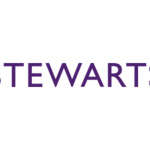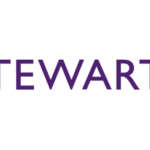Stewarts’ Julian Chamberlayne, Bradley Meads and Stuart Carson consider the most significant developments in relation to costs recovery, cost management, security for costs, conditional and contingency fees, litigation funding and insurance
The costs and funding of complex commercial disputes is rarely straight forward and this multi-faceted landscape has continued to shift and develop over the last couple of years. In this review we will consider the most significant developments in relation to costs recovery, cost management, security for costs, conditional and contingency fees, litigation funding and insurance.
Guideline hourly rates (‘GHRs’)
In 2021, the Civil Justice Committee published its long-awaited report on GHRs (‘the report’). While the new GHRs only came into force on 1 October 2021, they were already being adopted by the courts as early as July1 and by August they were being applied retrospectively as the 2010 iteration was ‘well out of date’.2 The 2021 GHRs are on average around 20% higher than the 2010 rates, but with a fair degree of variation by grade of lawyer and between the London and national bands. Perhaps surprisingly, the increase equates to around 2% per annum since 2010 compared to the Bank of England’s average inflation rate over the same period of 2.7%.3 The rates for London also appear well below the rates being routinely charged in heavy weight commercial disputes, but enhancements can be sought4 by reference to the factors within Civil Procedure Rule (‘CPR’) 44.4 and the updated Judicial Guide for Summary Assessment.5
The Master of the Rolls, Sir Geoffrey Vos, announced that the GHRs will be reviewed again within just two years. That may be too early for evaluation of the effect of any post pandemic changes in working practices to have impacted on charge rates, but will need to address the high levels of wage inflation in the legal sector and price inflation nationally.
Costs budgeting and management
Until recently, there has been little dissent among the judiciary to the benefits of costs management. In June 2021, however, Master Davison provided sweeping comments in Smith v W Ford & Sons (Contractors) Ltd6 as to the effectiveness of costs management in avoiding detailed assessment proceedings by saying: ‘QB Masters, Chancery Masters and Costs Judges do not necessarily share this defendant’s expressed confidence that costs budgeting controls costs better, or more effectively, than detailed assessment. This is a large topic and a complex and somewhat sensitive issue.’7
While there may be quiet rumblings in some corridors of the High Court, in February 2021 the Competition Appeal Tribunal (‘CAT’) adapted the costs management regime to suit the niche procedural stages, in Vattenfall AB & Others v Prysmian S.P.A & Others.8 The CAT said: ‘Properly prepared costs budgets are a useful case management tool, particularly where questions of proportionality arise, as they do in the present case.’
Damages based agreements (‘DBAs’)
In 2019, the Ministry of Justice commissioned Professor Rachael Mulheron of Queen Mary University and Nicholas Bacon QC to conduct an independent review of the DBA regulations. The reforms which they proposed had wide ranging support, including from Sir Rupert Jackson; the architect of the 2013 LASPO reforms which made this type of contingency fee agreement lawful in civil proceedings. It is now three years on and these sensible proposals have not still resulted in any amendment to the flawed DBA regulations, but the courts have helpfully started to resolve some of the uncertainties.
CFAs have been a feature of English litigation for nearly 30 years and are far more commonly used than DBAs as there is less uncertainty over enforceability.
In Zuberi v Lexlaw Ltd,9 the Court of Appeal unanimously indicated that hybrid DBAs would be lawful. It now appears to be lawful to agree that a reduced hourly rate will be due if the claim is lost, mitigating some of the risk for the law firm. Furthermore, the CAT in UK Trucks Claim Ltd v Fiat Chrysler Automobiles NV and Others10 (Judgment (Preliminary Issue), 28 October 2019 1282/7/7/18) rejected suggestions that third-party funding constituted a form of DBA, which would have otherwise prohibited the use of third-party funding in collective proceedings in the CAT (where DBAs are not permitted).
Conditional fee agreements (CFAs)
CFAs have been a feature of English litigation for nearly 30 years and are far more commonly used than DBAs as there is less uncertainty over enforceability. That said there are several recent decisions of some clients challenging the validity of CFAs:
- While is it incumbent on the solicitor to ensure that the client is fully and properly advised on the terms of a CFA, the High Court held that this does not mandate referring the client to an independent advisor (Acupay System LLC v Stephenson Harwood11). This judgment also confirmed that whether a CFA was a contentious business agreement, which impacts on the rights to challenge the costs, could be determined by the inclusion in the CFA of a clear statement of the parties intentions.
- The High Court confirmed that failure to comply with the solicitors code of conduct could make a CFA unenforceable by solicitors (Winros Partnership v Global Energy Horizons Corporation12).
Third-party litigation funding
While third-party funding was historically seen as contrary to public policy (Awwad v Geraghty & Co13), it is now ‘a well-recognised feature of modern litigation and facilitates access to justice for those who otherwise may be unable to afford’ (UK Trucks Claim Limited v Fiat Chrysler Automobiles NV and Others and Road Haulage Association Limited v Man SE and Others14).
Law firms have embraced this, with many developing partnerships with a particular funder. In 2021, Mishcon de Reya LLP announced a deal with Harbour Litigation Funding to set up a litigation financing facility for the exclusive use of funding Mishcon’s cases. Similar arrangements were agreed between Willkie Farr & Gallagher LLP and Longford Capital Management in 2021, and DLA and Litigation Capital Management/Aldersgate Funding Limited in 2020, to name a few. Law firms are duty-bound to act in their clients’ best interests, but closer links with a third-party funder could arguably influence decision making, for example, in terms of presenting funding options to clients or dealing with disputes that may arise between a client and a funder. For these reasons Rosenblatt has taken a different approach, by adopting a protocol which prevents LionFish Litigation Finance from funding its cases, as both are owned by the same parent company (RBG Holdings PLC).
Back in November 2011 the Code of Conduct for Litigation Funders was introduced by the Association of Litigation Funders, which aims to develop and promote standards of best practice for litigation funders in the UK. In 2020 the International Legal Finance Association was formed to act as a global voice of the legal finance industry, with the aim of influencing the international legislative, regulatory and judicial landscape. However, only the minority of litigation funders are members of either of these bodies. In the meantime and despite its increasing prevalence, litigation funding is still an unregulated industry, so litigants and their lawyers would be well advised to carry out their own due diligence on prospective funders.
Proportionality
In his speech15 to the 2021 conference of the Association of Costs Lawyers, the Master of the Rolls, commented on the ‘seemingly unlimited’ costs incurred in the Business and Property courts on cases, often involving foreign litigants, where costs could be used ‘as a weapon to oppress or harm those on the receiving end.’ These comments reflected judicial concern regarding the proportionality of costs incurred by parties in high-value complex litigation in the following recent cases:
- In The Public Institution for Social Security v Banque Pictet & CIE SA & Others16 (where costs totalled £18.5m), the Court of Appeal17 reiterated previous guidance given by the UK Supreme Court18 that forum disputes should not involve masses of documents, long witness statements and detailed analysis of the issues. Lord Justice Peter Jackson commented that at the detailed assessment, a costs judge’s power to disallow or reduce costs that are disproportionate in amount19 would be engaged even in high value litigation.
- In Município De Mariana & Ors v BHP Group PLC & Ors,20 the court noted that the parties had engaged in a ‘forensic arms race.’ This factor alone introduced a greater than usual breadth of argument over the proper assessment of the interim award. Just 50% of the £16m costs claimed was ordered.
Security for costs
Pursuant to CPR 25, an order for security for costs can be made to require a party to pay into court or provide a guarantee as security for a defendant’s costs in the event of an order being made against the claimant.
A claimant can provide alternative forms of security, but following the judgment given by the court in Tulip Trading Limited v Bitcoin Association for BSV21, we know now that this cannot be in the form of cryptocurrency. Bitcoin’s volatility could result in such security being effectively valueless and, therefore, did not provide the defendant with adequate protection.
The court also has the power to order third parties to provide security including where a third party has contributed towards the claimant’s costs in return for a share of money or property that might be recovered in the proceedings.
The court also has the power to order third parties to provide security including where a third party has contributed towards the claimant’s costs in return for a share of money or property that might be recovered in the proceedings. Following the decision in The RBS Rights Litigation, the threat of a potential cross undertaking had operated as a disincentive to applications for security against funders. However, the Court of Appeal’s decision in Mr Nigel Rowe & Others v Ingenious Media Holdings PLC & Others,22 overruled RBS and held that a court should only make orders for a cross-undertaking in damages in ‘rare and exceptional cases’, and only in even more exceptional circumstances should it do so in favour of commercial litigation funders. Lord Justice Popperwell commented that if the law were to be expanded in this area ‘it would be preferable that it be considered and developed by primary or delegated legislation, rather than by way of individual judicial decision.’ He also expressed a view that funders ought to be adequately capitalised and set up to provide security without passing on charges for doing so to their funded clients. This hope is not yet reflected in practice. At the time of writing, the authors have not yet seen or heard of any litigation funders who do not, one way or another, charge funded clients for reserving capital for security and/or require the clients to have fulsome security-proofed ATE insurance in place to insulate the funders from this risk.
After-the-event insurance (‘ATE’)
ATE insurance can also be used as security for costs. An area of recent focus has been on deeds of indemnity or anti-avoidance endorsements that confirm that the insurer will meet an order for costs in the defendants favour irrespective of any of the usual voidance and exclusion clauses in the policy. Whilst decisions on security tend to be fact specific the following cases are worth noting:
- In Infinity Distribution Ltd (in administration) v Khan Partnership LLP,23 the Court of Appeal considered whether the additional cost to purchase a deed of indemnity (a proportion of which would be payable by the defendant at the conclusion of the case) was relevant to the issue of whether the deed of indemnity was ‘good’ security, as the court below found. In ordering the claimant to pay the money into court instead of being able to rely on the deed of indemnity, the court noted the need to ensure a fair balance between the parties. Subjecting the defendant to this potential additional cost was contrary to the overriding objective.
- In URE Energy Limited v Notting Hill Genesis,24 the High Court considered the position where a claimant who had purchased ATE insurance but could not afford to pay for a deed of indemnity. Notwithstanding the defendant’s concerns about the policy avoidance terms and the cancellation rights of the insurer, the court allowed only a proportion of the total indemnity limit (£500,000) to stand as security for the defendant’s costs.
Whilst some law firms have embraced the concept of a portfolio or facility arrangement with a funder, Stewarts have taken a different route by launching a facility with Arthur J Gallagher Insurance Brokers Limited with a rapid process to incept high level indemnities at pre-agreed market leading rates: giving their clients more certainty when structuring case finance.
What’s next?
Looking ahead to 2022 we tentatively predict more cases applying (or distinguishing) the 2021 GHR including applying CPR 44.4(3) enhancement factors, greater use of costs management in high value disputes notably when levels of ATE cover and security for costs are in play, plus yet more cases filling in some of the grey areas of the DBA regime building on the Zuberi decision.

Julian Chamberlayne, partner

Bradley Meads, costs lawyer

Stuart Carson, partner
- ECU Group PLC v Deutsche Bank AG & Anor [2021] EWHC 2083 (Ch) (22 July 2021)
- Axnoller Events Ltd v Brake & Anor (Summary Costs Assessment) [2021] EWHC 2362 (Ch) (23 August 2021)
- https://www.bankofengland.co.uk/monetary-policy/inflation/inflation-calculator
- For instance see Justin Gutmann v First MTR South Western Trains Limited and Another [2021] CAT 36
- https://www.judiciary.uk/wp-content/uploads/2021/08/Guide-to-the-Summary-Assessment-of-Costs-2021-Final1.pdf
- Smith v W Ford & Sons (Contractors) Ltd [2021] EWHC 1749 (QB) (25 June 2021)
- Smith v W Ford & Sons (Contractors) Ltd [2021] EWHC 1749 (QB) (25 June 2021)
- Vattenfall AB & Others v Prysmian S.P.A & Others [2021] CAT 3 (05 February 2021)
- Zuberi v Lexlaw Ltd [2021] EWCA Civ 16
- UK Trucks Claim Ltd v Fiat Chrysler Automobiles NV and Others [2019] CAT 26
- Acupay System LLC v Stephenson Harwood LLP [2021] EWHC B11
- Winros Partnership v Global Energy Horizons Corporation [2021] EWHC 3410 (Ch)
- Awwad v Geraghty & Co [2000] 1 All ER 608
- UK Trucks Claim Limited v Fiat Chrysler Automobiles NV and Others and Road Haulage Association Limited v Man SE and Others [2019] CAT 26, 2019, 10 WLUK 722
- Law Society Gazette 25th November 2021
- The Public Institution for Social Security v Banque Pictet & CIE SA & Others [2022] EWCA Civ 29
- The Public Institution for Social Security v Banque Pictet & CIE SA & ors [2022] EWCA Civ 29
- VTB Capital plc v Nutritek International [2013] UKSC at [82] and [83]
- CPR 44.3(2)(a)
- Município De Mariana & Ors v BHP Group PLC & Ors [2021] EWHC 146 (TCC)
- Tulip Trading Limited v Bitcoin Association for BSV [2022] 2 (Ch)
- Mr Nigel Rowe & Others v Ingenious Media Holdings PLC & Others [2021] EWCA Civ 29
- Infinity Distribution Ltd (in administration) v Khan Partnership LLP [2021] EWCA Civ 565
- URE Energy Limited v Notting Hill Genesis [2021] EWHC 2695














